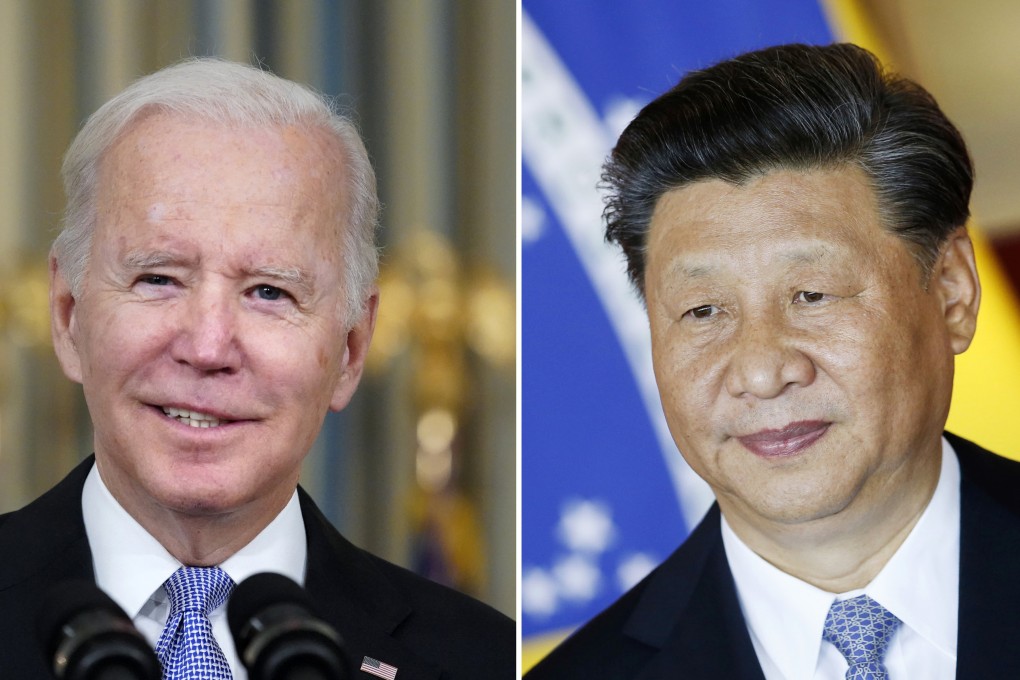Joe Biden to bring up Taiwan, ‘excessive’ South China Sea claims in call with Xi Jinping, White House says
- Biden will push Xi on ‘coercive and aggressive behaviour’ in South China Sea and reaffirm US commitment to the one-China policy, spokesman says
- No specifics are given in response to a question about House Speaker Nancy Pelosi’s reported plans to visit Taiwan

US President Joe Biden will confront his Chinese counterpart Xi Jinping about Beijing’s “excessive maritime claims” in the South China Sea when the two hold a conversation that is expected within days, a White House spokesman said on Wednesday, one of many points of friction that has intensified recently.
“As part of the president’s conversation, tensions in the South China Sea will come up as they have routinely with respect to China’s excessive maritime claims that aren’t backed up by international law, by their coercive and aggressive behaviour towards nations that border on the sea or are in the South China Sea,” said White House National Security Council spokesman John Kirby.

“There is an awful lot in the bilateral relationship between the United States and China for these two leaders to talk about,” Kirby said. “The key thing is that president wants to make sure that the lines of communication with President Xi remain open because they need to.”
The leaders’ call, which will be their fifth since Biden took office in January 2021, follows incidents in the South China Sea that administration officials deemed examples of Beijing’s increasingly aggressive stance.
Biden has portrayed China’s military build-up as a threat to free navigation in a region that accounts for a large portion of world trade, and to bolster ties with allies and partnerships such as the Quad. Beijing has criticised such moves as efforts to contain China.
Asked about the administration’s position on Pelosi’s reported plan to travel to Taiwan, which Beijing considers a wayward province that must eventually be reunited with mainland China, Kirby would only say that the Pentagon’s practice is to brief lawmakers on the geopolitical realities of their intended foreign destinations.